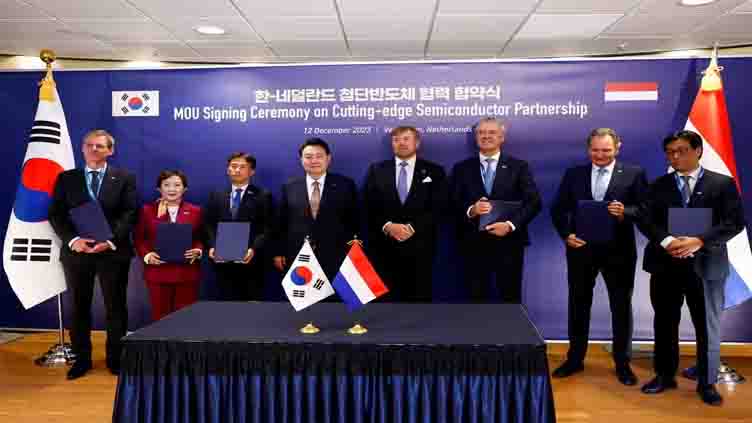Dutch seek to lure South Korean semiconductor talent with university programme

Technology
Foreign students at Dutch universities are an important source of talent
EINDHOVEN, Netherlands, (Reuters) - A group of 60 top students from South Korean technical universities on Friday completed the first "Future Chips Academy" in Eindhoven, intended in part to help attract much-needed foreign semiconductor engineering talent.
The week-long program of lectures and study was put together by the Eindhoven University of Technology together with the Dutch computer chip industry, including equipment makers ASML and ASM International, chipmaker NXP, and the Interuniversity Microelectronics Centre (Imec) in nearby Belgium.
The program, which invited students from three South Korean universities, underlines a high tech labour shortage in the Eindhoven region, which has become one of Europe's largest tech hubs.
"My goal is researching abroad," said program participant Dongyong Kim, 24, a masters student at Korea Advanced Institute of Science and Technology, who said he hopes to work for ASML or IBM, or to pursue a PhD at Imec.
According to regional development agency Brainport, the Eindhoven area employs around 80,000 high tech workers in a population of 800,000 and will create another 50,000 high tech jobs in the coming eight years, as many of half of which will have to come from abroad.
The "Future Chips" program has been launched at a time when the Netherlands' national government is seeking to reduce immigration, following an election in which right wing parties booked major gains.
Foreign students at Dutch universities are an important source of talent, but the government is working on plans to cap admittance and force classes be taught in Dutch, not English. It is also eliminating a tax break for highly skilled immigrants.
ASML CEO Peter Wennink and NXP Netherlands CEO Jean Schreurs, who personally met with students on the program, have criticized such policies as short-sighted.
"These are top notch companies, and they need access to top notch talent, said TU Eindhoven President Robert-Jan Smits. “So it’s very bizarre what the government is doing.... It’s not good policy.”


